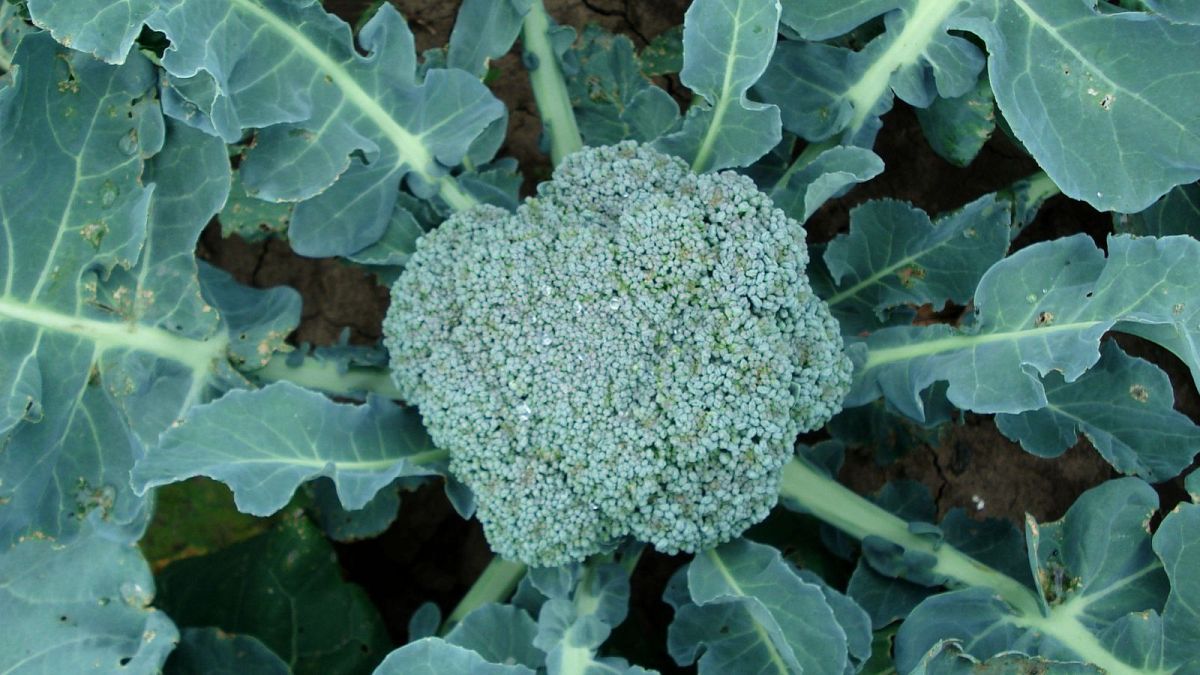British growers have been surprised to find their crops coming up early, after a mild autumn and winter.
UK shoppers may find broccoli, cauliflower and other brassicas harder to come by this spring due to multiple impacts of climate change.
Growers say that an unusually mild autumn and winter have caused the crops to flower early, meaning there will be fewer to go around during the country’s so-called “hungry gap” from April to June, when very few home-grown crops are ready to eat.
This is compounded by vegetable shortages from the rest of Europe, after climate-fuelled floods hit many key growing areas such as Valencia in Spain.
How is climate change impacting UK winters?
Guy Barter, chief horticulturist at the Royal Horticultural Society, was “perplexed” to discover cauliflowers ready to harvest months early on his Surrey allotment last week.
“I think what happened here is that the plants went in at the usual time but grew mightily in the wet July and September and the very mild autumn, so their natural mechanism of timing flowering by chilling was overridden by their larger-than-usual size, hence flowering now rather than April,” he told the UK’s Guardian newspaper.
Other growers and horticulturalists have reported seeing an uptick in slugs, which thrive in wet weather, creating another challenge for brassicas.
UK winters are getting warmer and wetter as the planet heats up, according to the country’s Met Office.
“Observations show a clear warming trend for average UK winter temperature, and this trend is projected to continue in the future due to human induced climate change,” the national weather and climate service states.
“This doesn’t mean the UK will no longer see cold spells,” it adds – like the recent cold snap – “however cold spells are projected to become less frequent and less severe.
Winters are also becoming wetter on the whole, as a warming atmosphere can hold more moisture – roughly 7 per cent more per 1°C of warming.
Increasingly heavy rainfall is causing trouble for growers across the continent – from potato farmers in Belgium to truffle hunters in Italy. But it had a particularly catastrophic impact for farmers in Valencia last year.
Valencia flooding impacts UK food supplies
Deadly flash flooding killed more than 230 people in southern and eastern Spain last October, after some areas were subjected to a year’s worth of rainfall in just eight hours.
As the floodwaters withdrew, they exposed decimated farmlands around Valencia and the surrounding regions of Almería and Andalusia, which produce the lion’s share of Spain’s fresh produce.
A hefty 60 per cent of the country’s citrus fruits are grown here, as well as a huge array of other foods.
Typically, Spain supplies 25 per cent of the UK’s fruit imports and 8 per cent of its vegetable imports, according to The Grocer. This includes staples such as lettuce, broccoli and tomatoes.
Given this dependency, the northern country will soon feel the impacts too.
“Our Spanish suppliers, who grow much of our winter broccoli, have faced setbacks due to heavy autumn rain, which caused quality issues and delayed planting for spring crops,” Hannah Croft, an agronomist at organic vegetable box company Riverford, told the Guardian.
“This has pushed harvest schedules forward, meaning there’s a possibility of a gap in late spring.”
This could be plugged by spring greens and other cabbages, but it still points to a worrying trend for growers and fans of brassica-based meals.
Checkout latest world news below links :
World News || Latest News || U.S. News
The post Why climate change is taking broccoli off UK supermarket shelves appeared first on WorldNewsEra.

